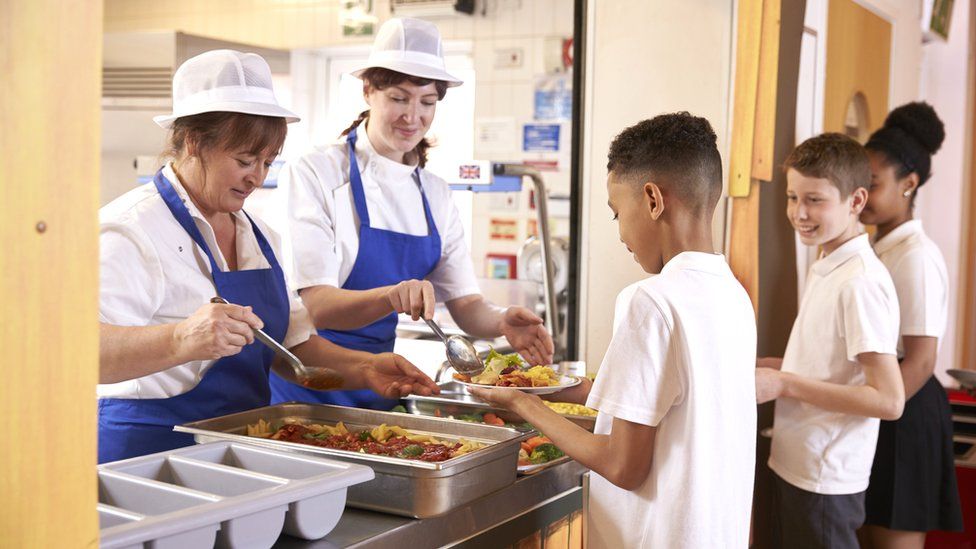
The action affects school catering, cleaning, janitorial, admin and classroom assistance staff
Scotland’s biggest council union is planning strikes that could close schools across the country next month
Unison members backed action in 24 of the 32 council areas after rejecting an average pay increase of 5.5%.
The strikes will involve catering, cleaning, pupil support, administration and janitorial staff in schools and early years centres.
Unison Scotland convenor Lilian Macer said workers had been put in an “untenable” position by Cosla.
The union later confirmed the action will take place in every local authority with the exception of Midlothian, Falkirk, Scottish Borders, Argyll and Bute, North Lanarkshire, East Lothian, West Lothian and East Ayrshire.
Glasgow, Edinburgh, Aberdeen and Dundee will be among the areas affected.
No dates have been confirmed yet but Unison’s local government committee will meet next week to prepare for the strikes.
Cosla said the “strong” pay offer represented a 7% rise on average, with the lowest paid council workers receiving a more than 9% increase.
The two other largest council unions, GMB and Unite, also have mandates for action in several parts of the country.
Council leaders have agreed to hold a special meeting to discuss whether the pay offer could be improved to try to settle the dispute.
Ms Macer said Unison had received the “strongest ever” strike mandate from local government workers.
The eight local authorities where no action will be taken all overwhelmingly backed the strikes but fell short of the required 50% turnout.
She accused Cosla of “delaying tactics” over pay negotiations but said the union would be open to further talks.
“The last thing we want to do is disrupt children’s education,” she told BBC Radio Scotland’s Drivetime. “We have been placed with no option.
“The Scottish government’s public sector pay policy makes no reference to inflation, makes no reference to the cost of living increase that members are facing. And for years members have been undervalued and underpaid.”
There is now the risk of widespread school closures because of strikes for the second time in a year.
If staff including janitors are on strike, it may be impossible to open school buildings.
Unison and the two other unions hope the mere threat of strikes will be enough to lead to a better pay offer.
The question is whether councils can afford a better pay offer without more cash from the Scottish government to help.
Some council leaders believe more government money is needed.
Last year, a strike over council pay led to the rubbish piling up in city centres. The Scottish government helped fund a new pay offer to end the dispute. The unions believe this could have happened earlier.
Will a solution be found in time this year?
Councillor Katie Hagmann, Cosla resources spokeswoman, said a special leaders meeting had been called to find a “swift” resolution to strike action.
“Cosla leaders are confident this is a strong offer,” she told BBC Scotland News. “However, they recognise that the unions have rejected this so we have to absolutely listen to those concerns and respect the outcome of any ballot.”
She said the Scottish government had previously given Cosla additional funds to boost the pay offer, and that discussions over funding were ongoing.
GMB Scotland last week confirmed its members in 10 Scottish councils would go on strike on 13 and 14 September.
The areas affected are Aberdeen, Clackmannanshire, Comhairle Nan Eilean Siar, Dundee, East Dunbartonshire, Falkirk, Glasgow, Orkney, Renfrewshire and South Ayrshire.
Unite members in 10 local authorities also voted to strike over pay after the summer break but it has yet to announce dates.
The 10 areas are Argyll and Bute, Clackmannanshire, Comhairle nan Eilean Siar, Dundee, East Dunbartonshire, East Renfrewshire, Fife, Glasgow City, Inverclyde and Orkney.








